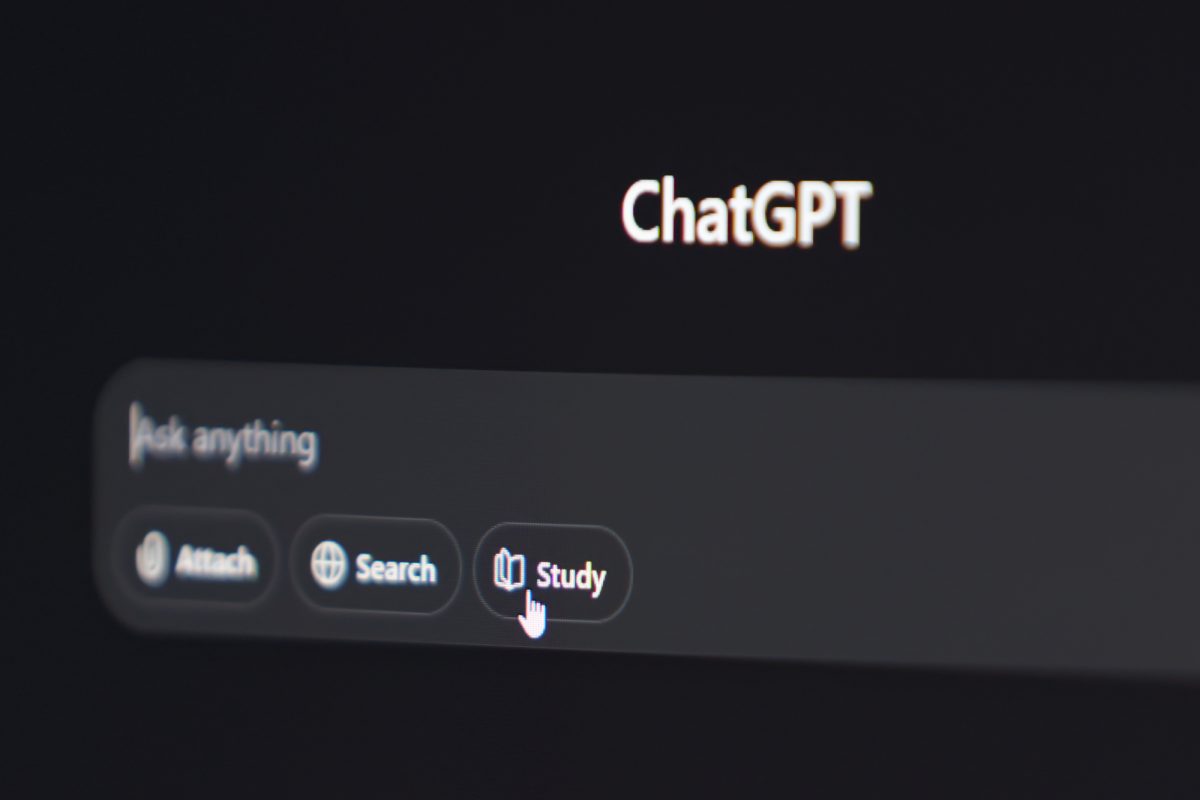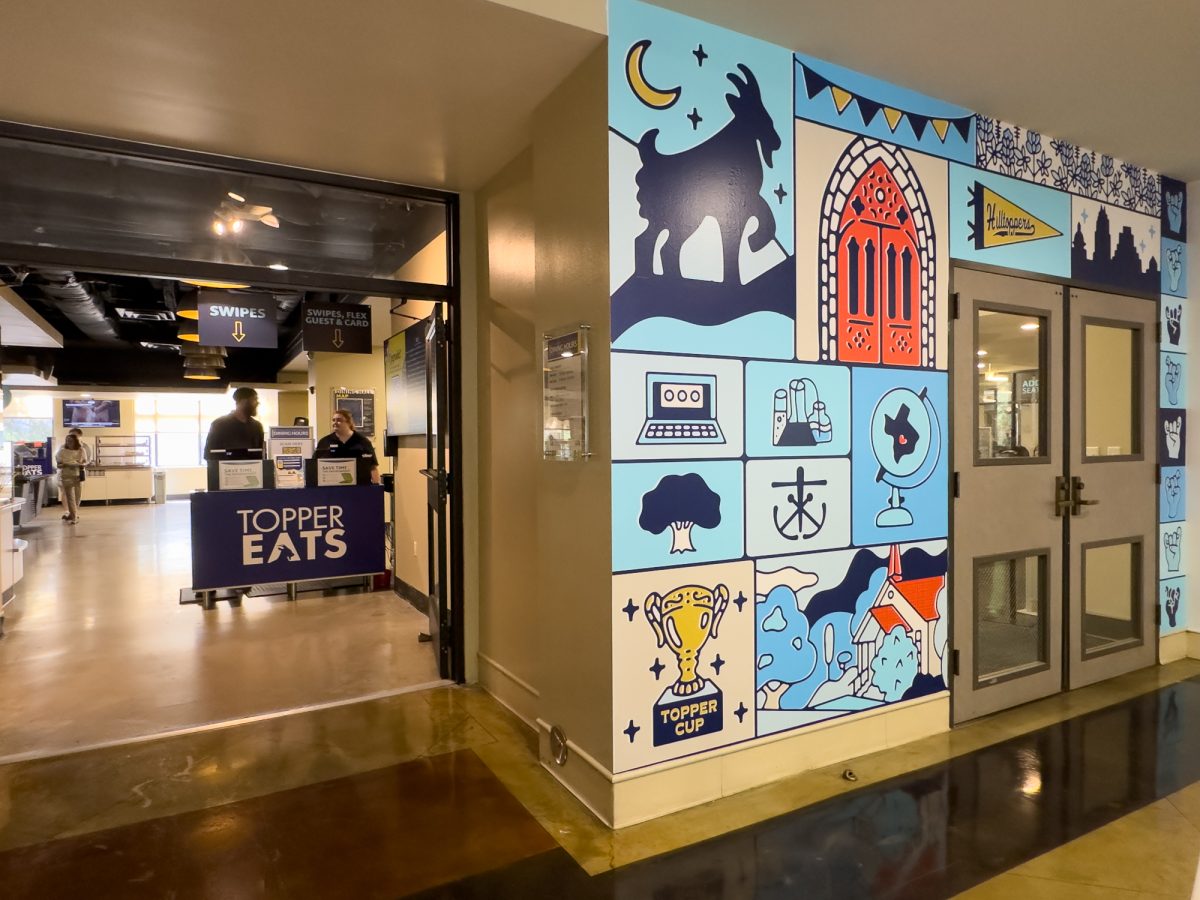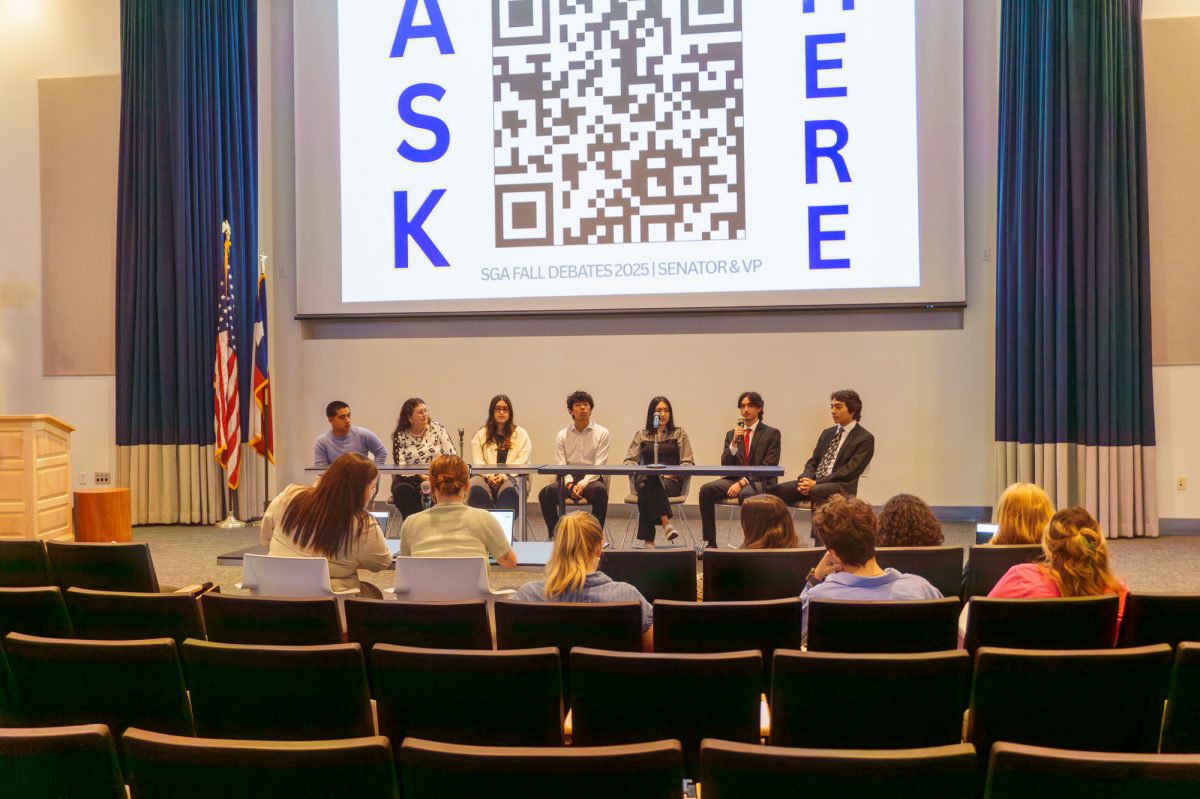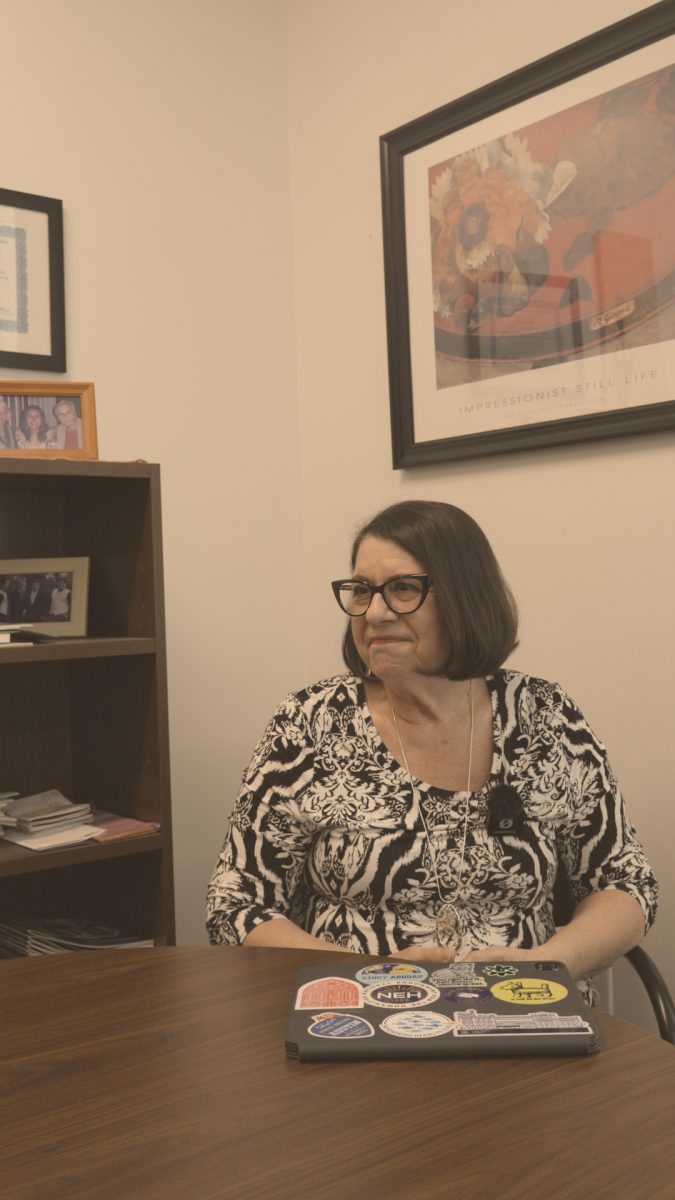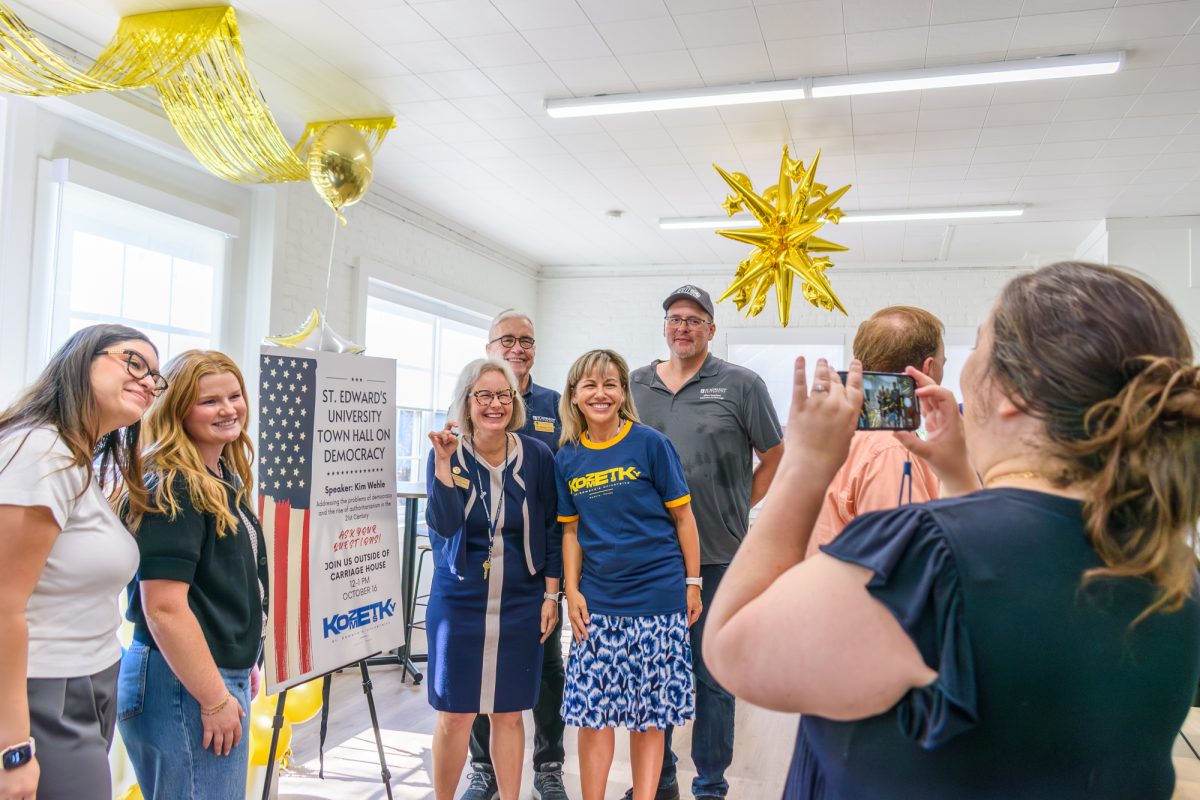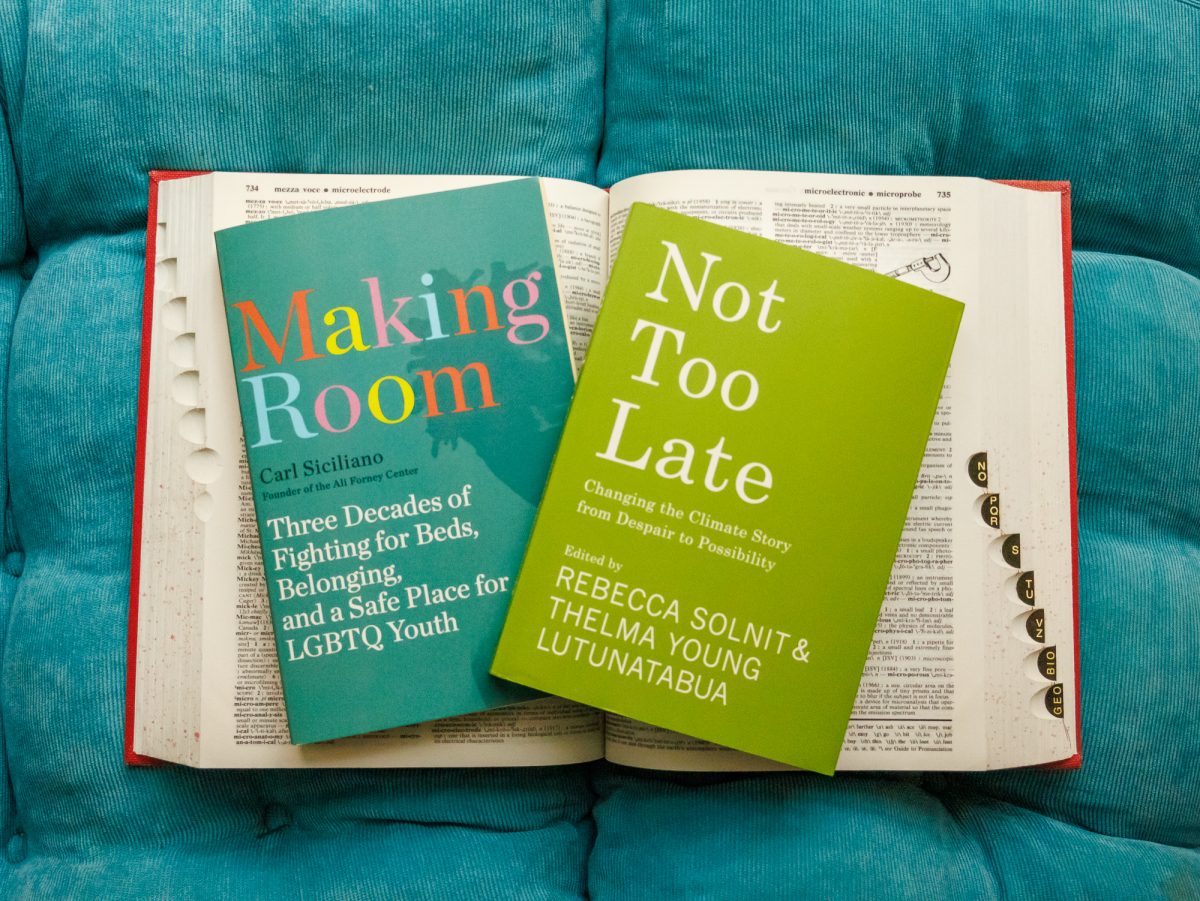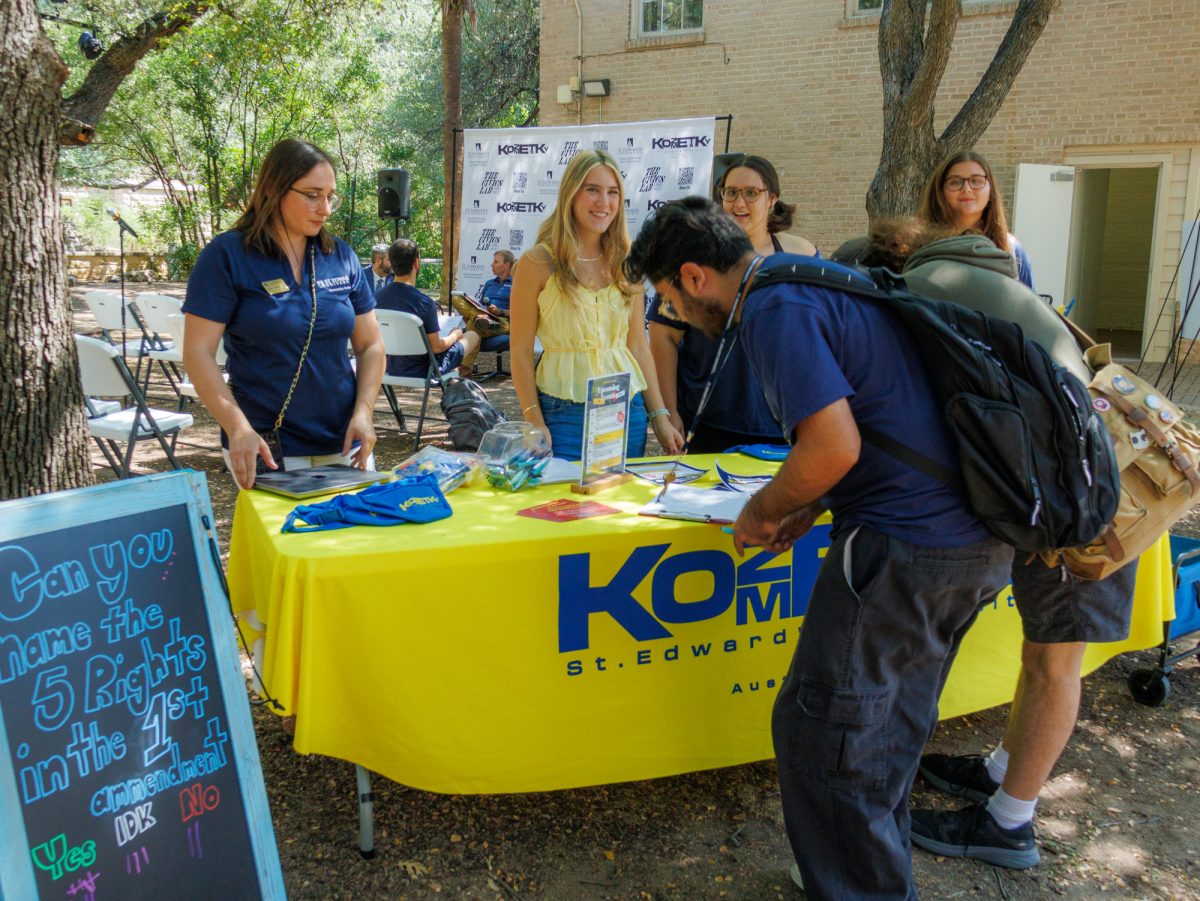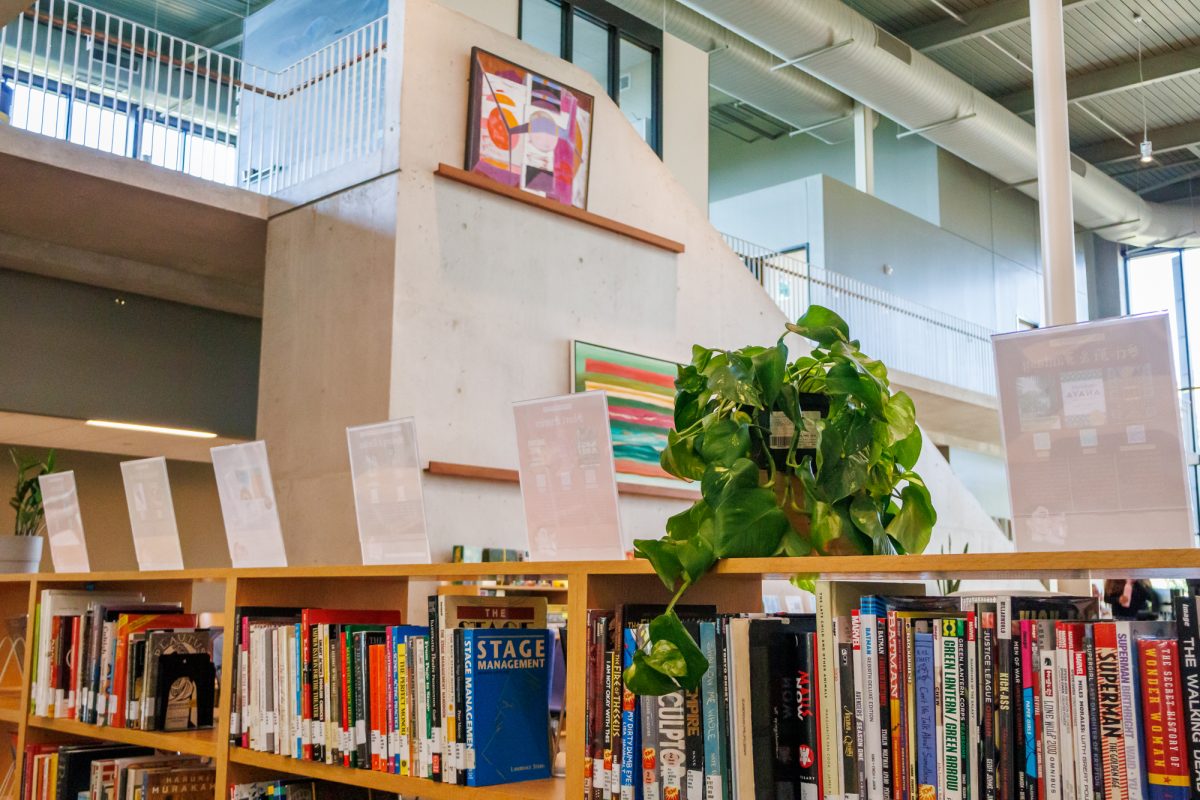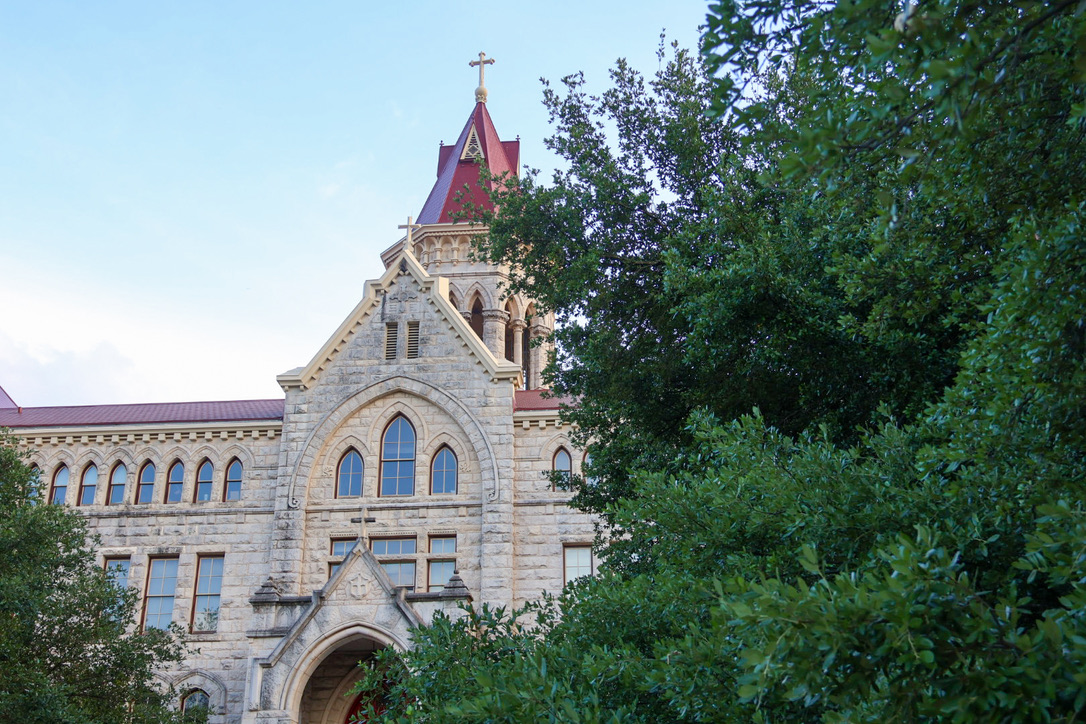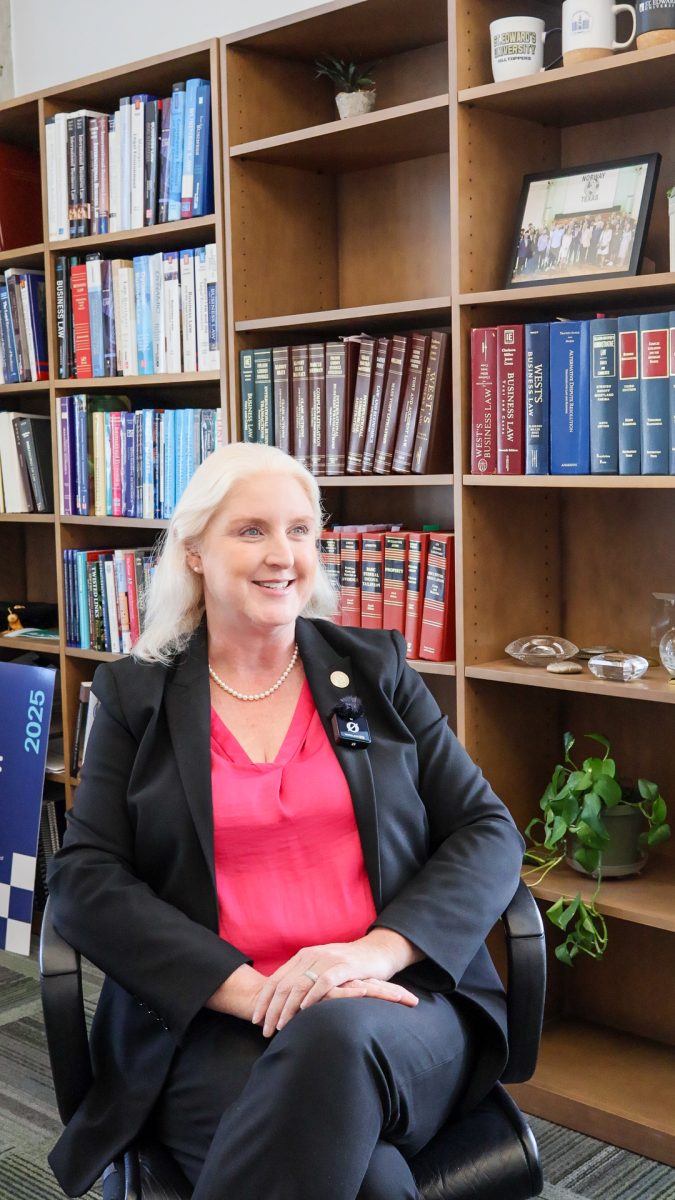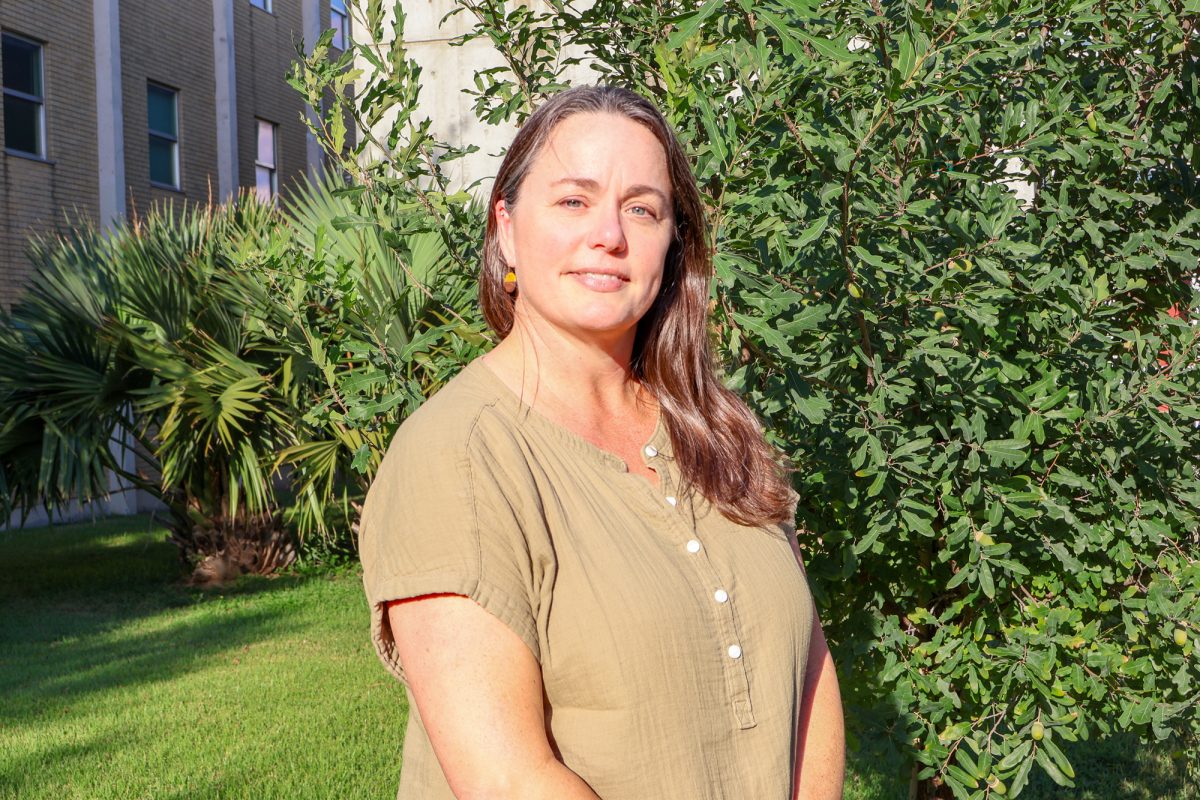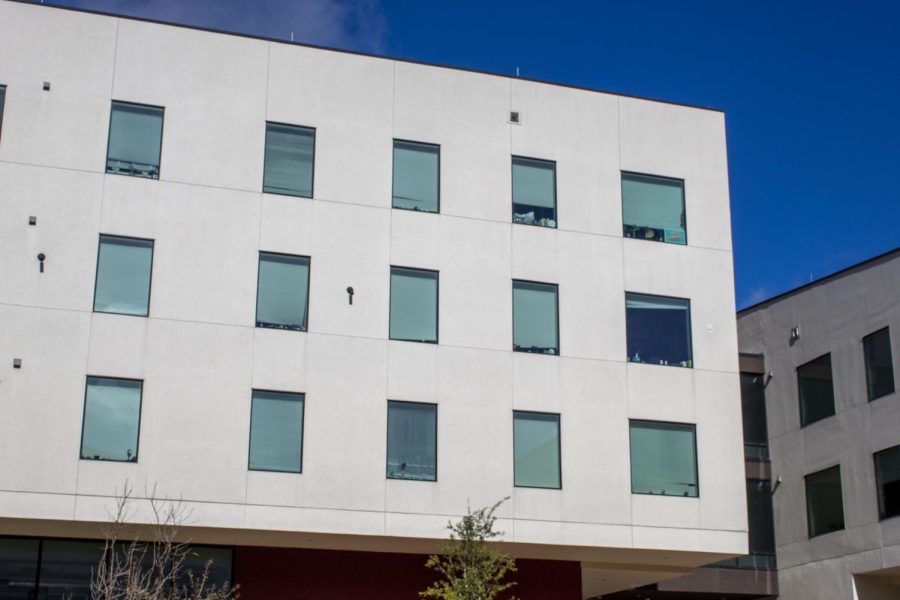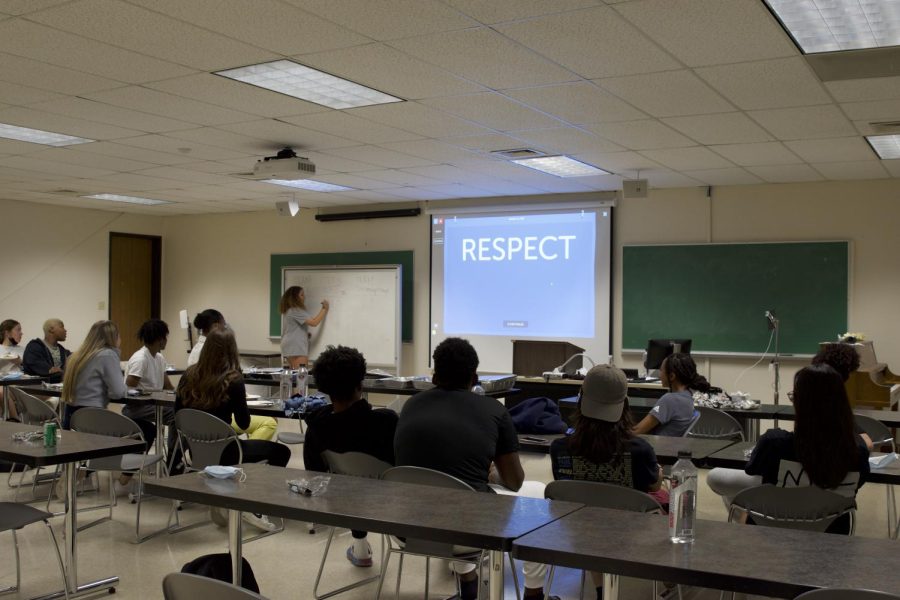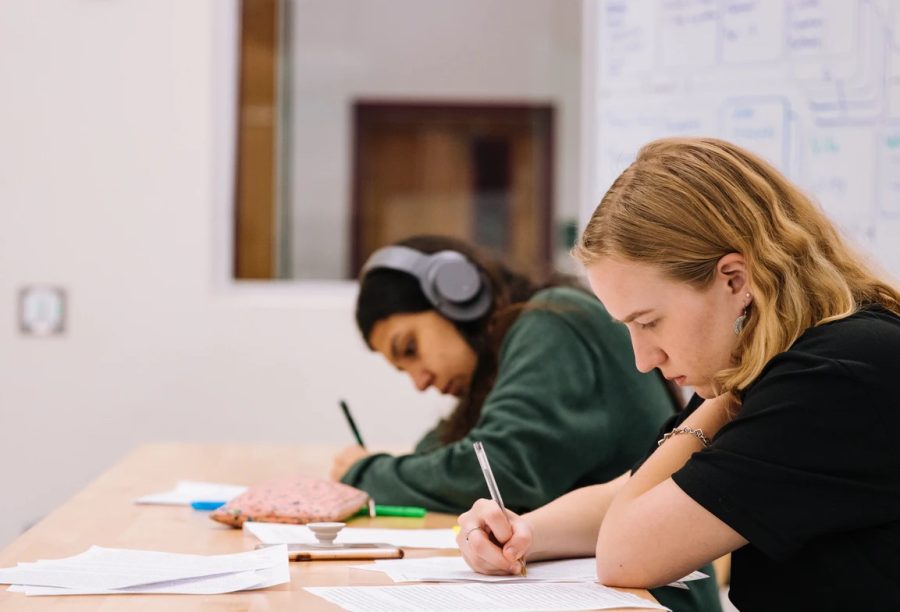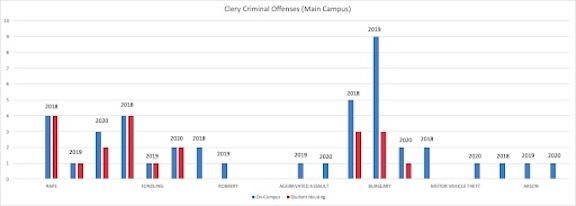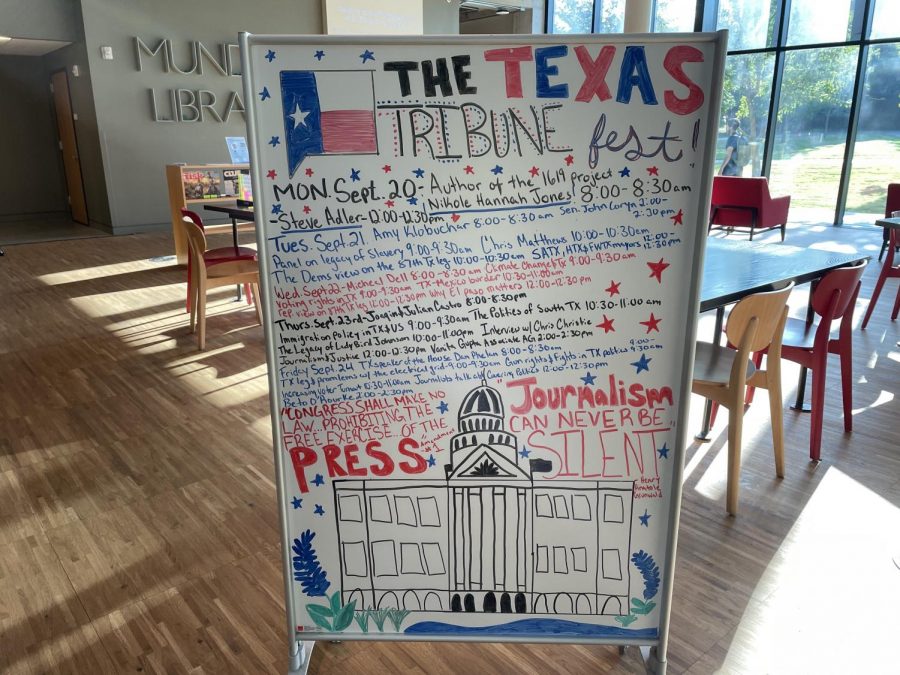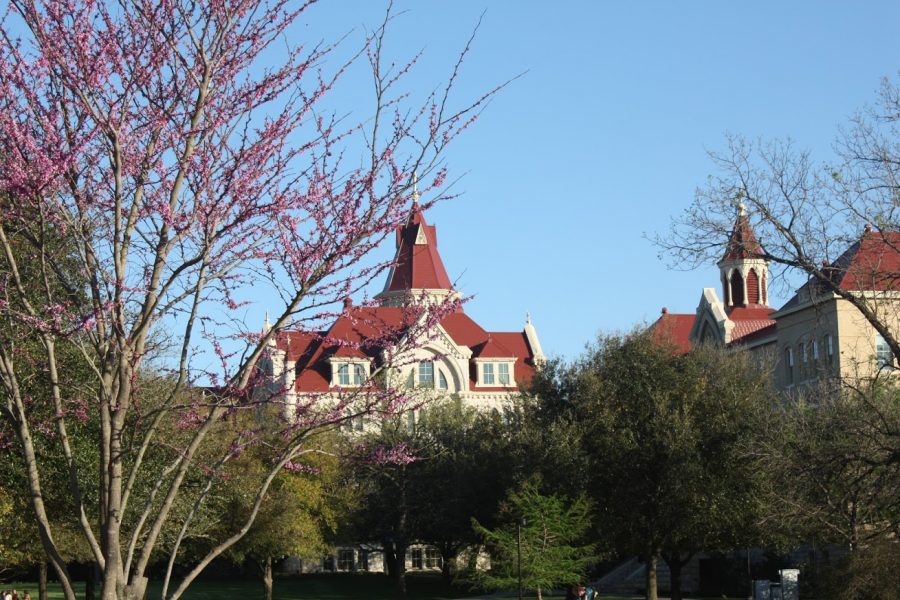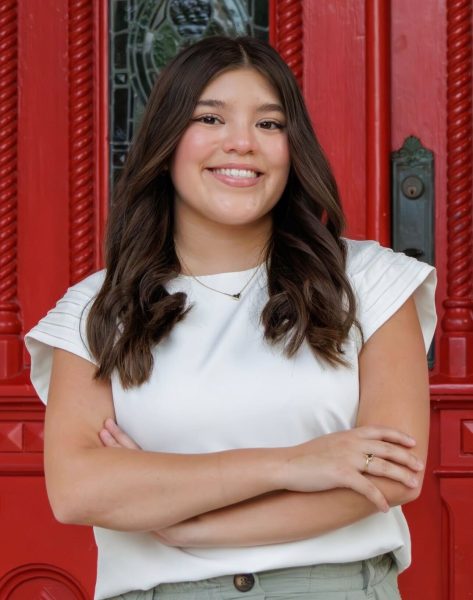Hilltop Views reporters Nicole Williams-Quezada, Anna Pratts and Zemira Recio sat down with Dean Jonathan Hodge of the School of Natural Sciences to discuss his academic background, what the school has to offer for STEM students and new initiatives that are being introduced this upcoming school year. This interview has been edited for length and clarity.
Introduce yourself, give us context on your background and explain what led you to your position here at St. Edward’s.
My name is Jonathan Hodge. I’m the Dean of the School of Natural Sciences, but I am also a professor of mathematics and this is my fifth year at St. Edward’s. I spent the first 19 years of my career at Grand Valley State University in Michigan.
I grew up in Michigan and lived in Michigan my whole life prior to moving down here. I started my career there right after grad school and ended up in a variety of different administrative roles. I chaired the mathematics department, chaired a couple of other departments and then decided I wanted to go on the job market to be a dean.
I was looking for places like St. Edward’s that fit well with my previous experiences and my views on education. Also, I was really involved in undergraduate research throughout most of my career and that’s a real strength of St. Edward’s, so that was a selling point. I’m also really drawn to the mission of St. Edward’s University and I had not had a lot of experience with Catholic higher education, but the Holy Cross mission and the foundation in Catholic social teaching really resonated with me.
What are a few words to describe the School of Natural Sciences and why?
Transforming lives, families and the scientific community.
We view the work that we’re doing as preparing scientists who are going to have pathways to rewarding, well-compensated and in-demand careers, but they’re also going to be able to make a difference in their families. We know that education has a generational impact and we also see the work that we’re doing as having a significant impact on the scientific community because we can’t expect scientific progress to benefit everyone if we don’t have diverse backgrounds, perspectives and experiences at the table. That’s what St. Edward’s students bring and we view all of those as fitting together.
Is there a certain niche that students at the School of Natural Sciences bring to the table?
Yes, absolutely. First of all, we are providing education in the sciences in STEM fields, and that fits very well with Austin’s economy in the science and tech sector. Being in Austin and having those fields represented is really important, but I think that a science education at a place like St. Edward’s where that Holy Cross mission is is so important. It means that we’re preparing scientists who are not only technically competent with scientific and technical expertise, but they’re also effective communicators and have a sense of social, moral and ethical responsibility and they’re committed to using their education for the betterment of society and really making sure that science progresses in a way that is in service of a more just, humane and sustainable world.
If you were to enroll at St. Edward’s as a student, what major in the School of Natural Sciences would be compelling to you?
I think that we have so many different interesting majors, but one that would be interesting to me would be environmental biology and climate change. One of the things that we have at St. Edwards that’s kind of unique to the School of Natural Sciences is that we co-own and co-manage the Wild Basin Wilderness Preserve, and there’s a lot of opportunity to do ecological and sustainability-focused research. Wild Basin, I’ll mention, is not just for biology or ecology. We have forensic science classes that meet out there in the other schools, there’s an artist in residence and there’s all sorts of research and creative activity across multiple disciplines that takes place at Wild Basin. I work one day every couple of weeks at Wild Basin, so I think that it’d be really interesting to study some of the ecology and sustainability aspects of biology from that perspective.
Besides Wild Basin, what are other experiential learning opportunities that students in this school have?
We do a lot in terms of providing research, internship and study abroad opportunities for students. For example, if we look back at the past summer, we had 64 students doing paid research and internship projects and over the last four years, we’ve invested something like $1.2 million in raising and investing funds for those kinds of experiences and they make a huge difference for students. They’re really great in terms of building those research skills, but also helping students be prepared for the job market. We have internships through our i4 Institute (Institute for Interdisciplinary Science) and also have several grant programs.
We also incorporate experiential learning throughout our classes. Right in the Biology I labs, there’s undergraduate research experiences focused on water quality, and so it’s not something that is kind of a one-off that you do for a summer. It’s really something that you’ll see throughout the curriculum as a major in Natural Sciences.
What has been the most significant change that you’ve seen in the School of Natural Sciences here at Edwards?
One of the things that I’ve seen over the last couple of years is how AI is changing everything and the societal transformation that we’ve seen, starting with Chat GPT and then just the explosion of AI-assisted technology. It’s really important that we think about the implications of that in all of our disciplines. Across the sciences, that’s one of our major areas of focus this year, ensuring that in every one of our disciplines, students are having conversations about ethical use of AI and what’s appropriate, what’s not appropriate, what’s useful, what are the strengths and what are the limitations. We introduced an AI concentration in computer science and have a new applied data science major this fall.
These conversations have to take place across the board because the tools are there and students are certainly going to use them. There’s a lot of important questions about the critical use of those tools, thinking about how to use them effectively and if we should be using them in certain circumstances, as well things like the environmental impact of AI. These are all important questions that we are addressing in natural sciences.
Tell us more about the new applied data science major that started this fall.
It’s a major and it’s housed in the mathematics department. It’s a little bit unique because, in addition to the required courses for the major, every student has to choose a minor, and then the capstone project involves applying what they’ve learned in the data science courses to the content within that minor. It’s really unique in the sense that it allows students to introduce that interdisciplinarity to their studies and prepare them to use data science in a variety of fields, wherever they might end up in their career.
How do you think the School of Natural Sciences is preparing students for a job market that is changing and potentially more difficult than it’s been in the past for recent grads?
The nature of science is that it progresses, so we’re never going to be teaching the skills that students are going to need in their jobs 10 or 20 years from now. Just in terms of those technical competencies, all of that is going to evolve. Some of it’ll stay the same, but a lot will change, so I think what you’ll see in natural sciences, and across the university, is that, in addition to the technical and scientific expertise, we are working to develop those more durable skills that employers are looking for, career competencies like communication, collaboration, leadership and critical thinking. We’re going to need those more than now, because you can have these AI tools out there, but if you don’t have graduates who are prepared to think critically about them, who are prepared to engage with them ethically, there need to be some guardrails there, and that’s what some of these more durable skills provide. It’s also the case that employers are always looking for students who are able to work well with others, who can communicate effectively, who have respect for folks from diverse backgrounds and can work with people of all different backgrounds and experiences and identities, and these are skills that are going to transcend any changes. That’s one of the benefits of a liberal arts education.
How do you think that it’s important for St. Edward’s Natural Sciences students to have a small cohort, small classrooms, and have a connection with professors?
We do offer something distinctive here, and a lot of that is rooted in the faculty that we have. At a school like St. Edward’s, you get to know your faculty and staff, and that’s possible. At larger universities, it’s just a lot harder, and you definitely couldn’t be a number here if you tried to. Your professors are going to get to know you, notice if you’re not in class, they’re going to be willing to have conversations with you in the hallway or in their office and those relationships provide so many opportunities. You might be able to do research with your professors. They might have connections at a local employer that could provide an internship. I would say throughout my career, some of the most significant growth that I’ve experienced and the most significant opportunities that I’ve had have come through my relationships and connections with other people. The other thing I would add to this is when we do research with a faculty member here at St. Ed’s, you are not just one of many, but you’re working with a collection of graduate students and postdocs, which can be great as well.
What would you say to freshmen that are new to this discipline and going into their collegiate career?
To freshmen who are new to the sciences, ask questions and be willing to do things differently sometimes. A piece of advice that I give is evergreen and applies to just about everyone, which is to always be willing to grow, have a growth mindset, and focus on what you can do to learn and improve yourself throughout your life and throughout your career.

